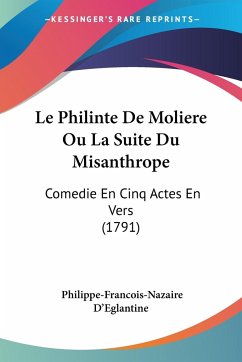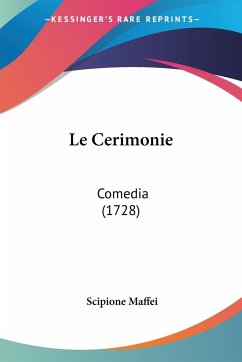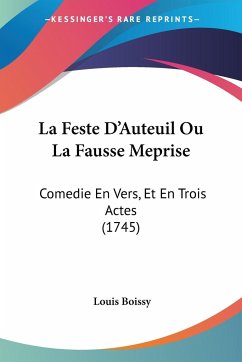
Le Caffe Ou L'Ecossaise
Comedie (1760)
Versandkostenfrei!
Versandfertig in 1-2 Wochen
26,99 €
inkl. MwSt.

PAYBACK Punkte
13 °P sammeln!
Le Caffe Ou L'Ecossaise: Comedie (1760) est une pi¿¿¿¿¿ce de th¿¿¿¿¿¿¿¿¿¿tre ¿¿¿¿¿crite par David Hume. L'histoire se d¿¿¿¿¿roule dans un caf¿¿¿¿¿ ¿¿¿¿¿¿ ¿¿¿¿¿dimbourg, en ¿¿¿¿¿cosse, ö¿¿¿¿ les personnages discutent de sujets philosophiques et politiques. La pi¿¿¿¿¿ce met en sc¿¿¿¿¿ne des personnages tels que Mme Claverock, une veuve riche et excentrique, ainsi que le philosophe Mr. John Bull, qui est en d¿¿¿¿¿saccord avec les opinions de ses amis. Le Caffe Ou L'Ecossaise est consid¿¿¿¿¿r¿¿¿¿¿ comme une com¿¿¿¿¿di...
Le Caffe Ou L'Ecossaise: Comedie (1760) est une pi¿¿¿¿¿ce de th¿¿¿¿¿¿¿¿¿¿tre ¿¿¿¿¿crite par David Hume. L'histoire se d¿¿¿¿¿roule dans un caf¿¿¿¿¿ ¿¿¿¿¿¿ ¿¿¿¿¿dimbourg, en ¿¿¿¿¿cosse, ö¿¿¿¿ les personnages discutent de sujets philosophiques et politiques. La pi¿¿¿¿¿ce met en sc¿¿¿¿¿ne des personnages tels que Mme Claverock, une veuve riche et excentrique, ainsi que le philosophe Mr. John Bull, qui est en d¿¿¿¿¿saccord avec les opinions de ses amis. Le Caffe Ou L'Ecossaise est consid¿¿¿¿¿r¿¿¿¿¿ comme une com¿¿¿¿¿die satirique qui explore les id¿¿¿¿¿es de la philosophie des Lumi¿¿¿¿¿res et les conflits sociaux de l'¿¿¿¿¿poque. La pi¿¿¿¿¿ce a ¿¿¿¿¿t¿¿¿¿¿ publi¿¿¿¿¿e pour la premi¿¿¿¿¿re fois en 1760 et est devenue l'une des ¿¿¿¿¿uvres les plus c¿¿¿¿¿l¿¿¿¿¿bres de Hume.This scarce antiquarian book is a facsimile reprint of the old original and may contain some imperfections such as library marks and notations. Because we believe this work is culturally important, we have made it available as part of our commitment for protecting, preserving, and promoting the world's literature in affordable, high quality, modern editions, that are true to their original work.












